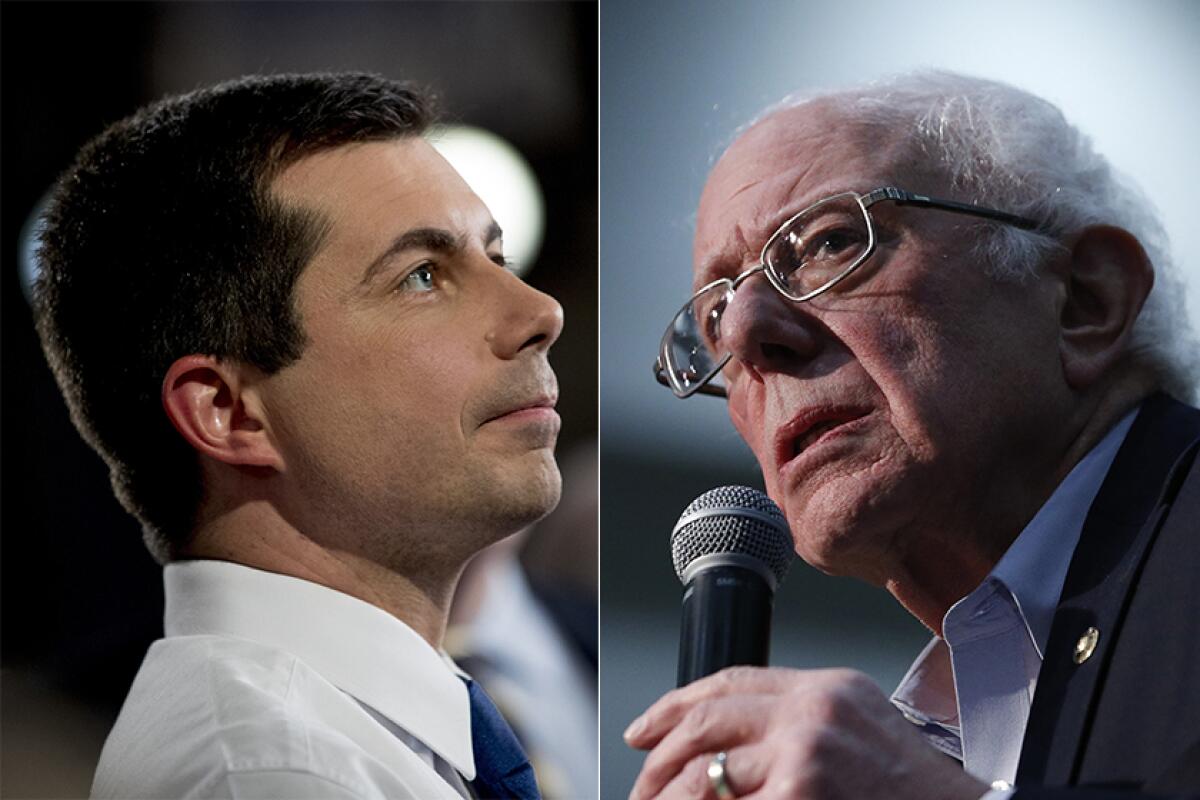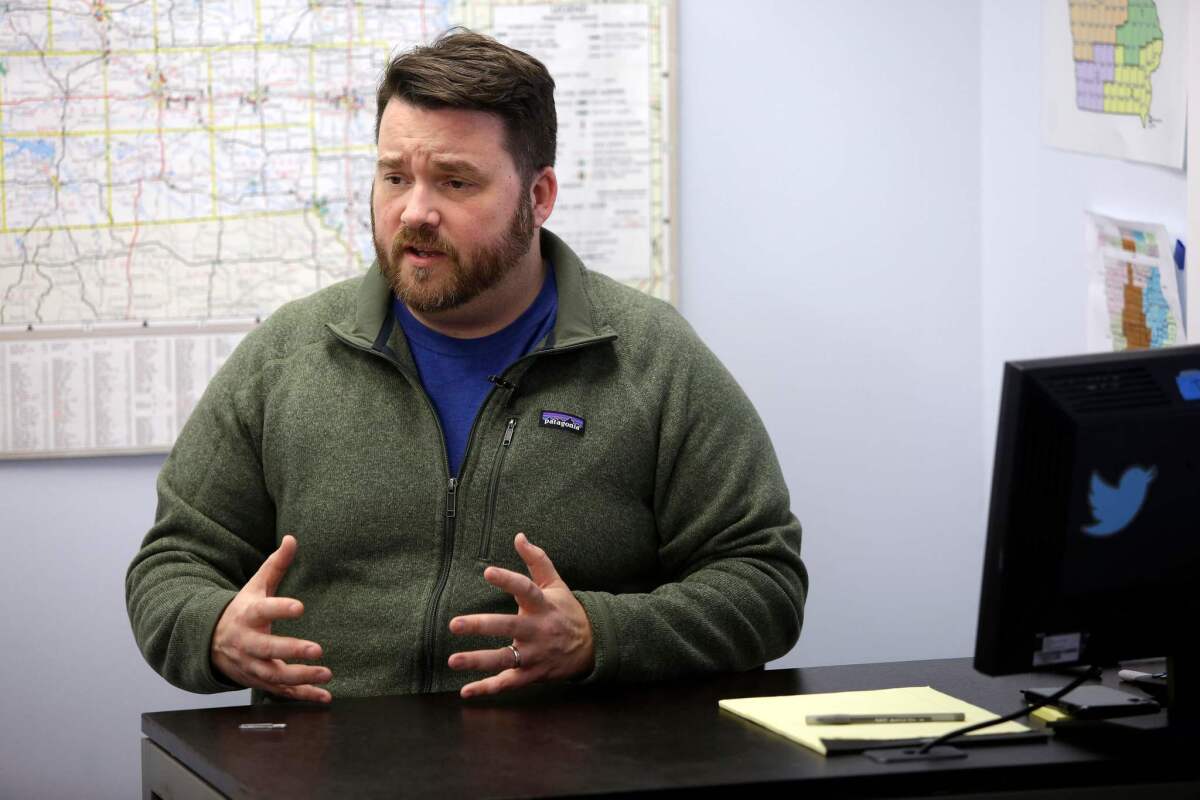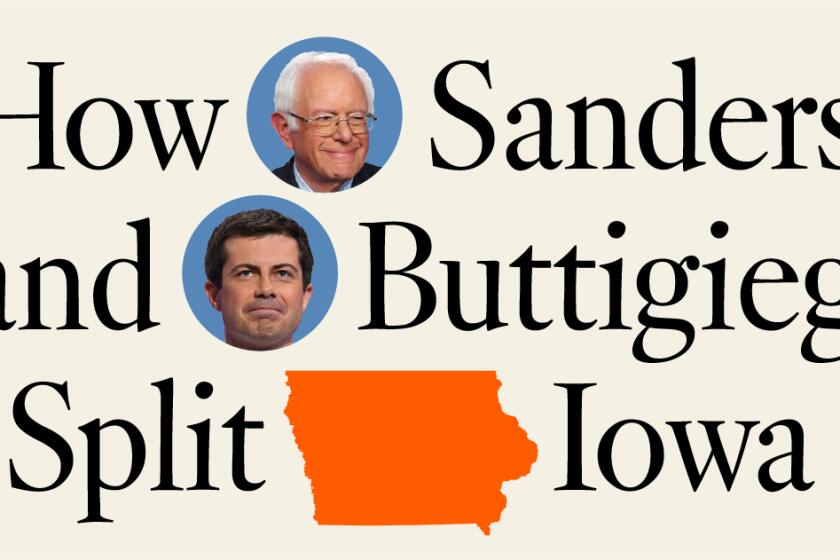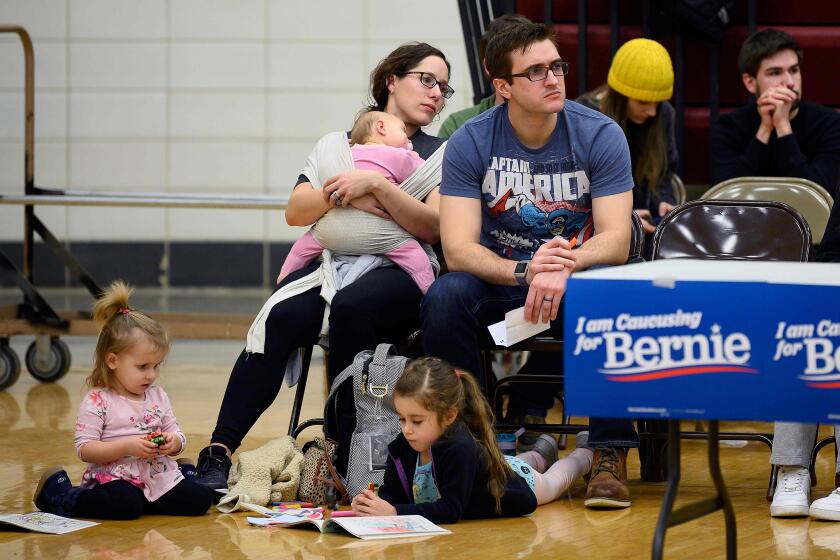Democratic Party chairman calls for Iowa recount as vote tally meltdown continues

- Share via
The chairman of the Democratic National Committee called Thursday for a review of the vote count in the party’s botched Iowa caucuses as new questions emerged about the integrity of the results in the first contest of the 2020 presidential race.
“Enough is enough,” party Chairman Tom Perez said on Twitter.
Perez lacks the power to require a recanvass, but Iowa Democratic Chairman Troy Price said the party was prepared to conduct a review of the tally if any of the presidential campaigns ask for one by noon Friday. No candidate has made such a request public.
Software breakdowns, clogged phone lines and mistakes in the tabulation have turned the Iowa contest into a major embarrassment for the Democratic Party as it seeks to rally around a challenger to run against President Trump in November. The party released no results until Tuesday afternoon, and votes from dozens of precincts remained uncounted late Thursday.
The Associated Press, which news organizations rely upon to assess election returns, announced Thursday that it was unable to declare a winner.
“The Associated Press calls a race when there is a clear indication of a winner,” said Sally Buzbee, AP’s senior vice president and executive editor. “Because of a tight margin between former Mayor Pete Buttigieg and Sen. Bernie Sanders and the irregularities in this year’s caucus process, it is not possible to determine a winner at this point.”
With 100% of the precincts reporting their state delegate count by Thursday night, Buttigieg, the former mayor of South Bend, Ind., was a whisker ahead of Vermont Sen. Sanders, 26.2% to 26.1%, followed by Massachusetts Sen. Elizabeth Warren, 18%, former Vice President Joe Biden, 15.8%, and Minnesota Sen. Amy Klobuchar, 12.3%.
Yet Sanders declared victory at a campaign stop Thursday in New Hampshire, noting that he’d actually won the most votes in both rounds of voting in Iowa’s caucuses and would ultimately wind up with the same number of delegates to the Democratic National Convention that Buttigieg will get. He called the tabulation “a big screw-up.”
“Some 6,000 more Iowans came out on caucus night to support our candidacy than the candidacy of anyone else,” Sanders said. “And when 6,000 more people come out for you in an election than your nearest opponent, we here in northern New England call that a victory.”
Buttigieg made what amounted to an Iowa victory speech Monday night, even in the absence of results.
The New York Times reported Thursday that results released by the Iowa state party were riddled with inconsistencies, casting doubt on whether a precise final result will ever be possible. Some vote tallies did not add up, some precincts allotted the wrong number of delegates to certain candidates, and the state party’s results did not all match those reported by the precincts, the Times said.
If a recanvass occurs, it would entail an audit of the tabulation worksheets submitted by managers of the 1,756 caucus precincts. The worksheets give totals for the first round of voting; totals for the second round of voting after candidates who got less than 15% in the first round were eliminated; and the allocation of state delegates to each candidate based on the final round of voting.
Price, the state Democratic leader, reiterated that “the reporting circumstances on Monday night were unacceptable,” saying the party “identified inconsistencies in the data and used our redundant paper records to promptly correct those errors. This is an ongoing process in close coordination with precinct chairs, and we are working diligently to report the final 54 precincts to get as close to final reporting as possible.”

Regardless of whether a recanvass takes place, the party’s failure to report reliable results after three days has heightened calls for Democrats to drop the Iowa caucuses as the opening contest in their presidential nomination process. The meltdown has revived long-standing complaints that a predominantly white rural state is a poor representative of an increasingly diverse and urban-centered party.
“I think the Democratic caucus in Iowa is a quirky, quaint tradition which should come to an end,” Illinois Sen. Richard J. Durbin told MSNBC in an interview as the fiasco was unfolding Tuesday. “As we try to make voting easier for people across America, the Iowa caucus is the most painful situation we currently face for voting.”
The Boston Globe editorial page suggested Wednesday that both Iowa and New Hampshire, which holds the first presidential primary, should no longer be allowed to exert disproportionate influence on U.S. elections, saying the demographics of both states “resemble 19th century America.”
“With each passing election, the privileged place of Iowa and New Hampshire becomes harder to defend,” the Globe said. “The vote-counting snafu in Iowa this week seems to have unleashed years of pent-up frustration about a system that is unfair to Americans in the 48 other states and continues to distort American politics.”
Iowa’s main function in the past has been to produce a windfall of media coverage and campaign donations for those who do well — and to drive candidates who do poorly to quit the race. But no candidate has bowed out, and Buttigieg has been unable to fully capitalize on what might have been an unexpected victory, although he has risen this week in polls on Tuesday’s New Hampshire primary.
“There are no words for how disastrous it was and is,” said Joe Trippi, a strategist who ran Democrat Howard Dean’s 2004 campaign for president. “Nothing close to that. Ever. It’s an incredible snafu with big implications.”
Democrats in Nevada are scrambling to avoid a botched caucus like Iowa’s.
Still, Iowa Democrats are fighting to maintain their first-in-line spot in the presidential race.
“It didn’t work great this time, but let’s learn from it and let’s go on,” said Jean Hessburg, a former Iowa state party executive director. “I’m not one to throw the baby out with the bathwater.
“The caucuses have been and will always be a great example of democracy at its finest — people talking about issues, people talking to each other, people actually participating in the voting process,” she said.
Jeff Link, a veteran Democratic operative in Iowa, said the state’s caucus system was “not built for close elections,” but suggested it nonetheless serves as a valuable launching ground for candidates like Buttigieg who start with no national profile and no major fundraising base.
“If that isn’t proof that Iowa works and exists for a reason as a way to level the playing field,” he said, “I don’t know what else is.”
Times staff writers Mark Z. Barabak and Evan Halper in New Hampshire, Melissa Gomez and Seema Mehta in Los Angeles and special correspondent Arit John in Los Angeles contributed to this report.
More to Read
Get the L.A. Times Politics newsletter
Deeply reported insights into legislation, politics and policy from Sacramento, Washington and beyond. In your inbox twice per week.
You may occasionally receive promotional content from the Los Angeles Times.













